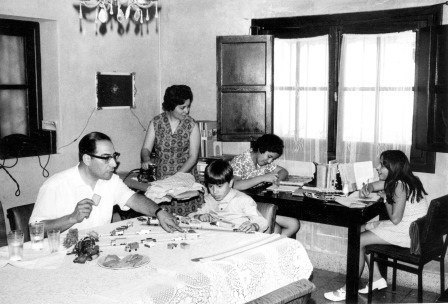This article originally appeared in National Review.
Is the American dream on life support? That’s the perennial claim of “declinists,” who are convinced that the American spirit of opportunity is at death’s door. That claim was recently bolstered by research from a team of top economists, who found that half of today’s 30-year-olds are worse off than their parents were at the same age. A closer look at that study, however, reveals that opportunity is alive and well. That does not mean we should be complacent about removing barriers to success for those born disadvantaged, but neither should we worry that the nation’s best days are behind us.
For a long time, some declinists reluctantly acknowledged that Americans enjoy much higher living standards than those of previous generations. But, they argued, it’s harder to rise from rags to riches than it used to be. That claim ran against 20 years of academic research on “relative economic mobility” — moving from, say, the bottom fifth to the middle fifth of family income between childhood and adulthood. Those studies consistently found that any changes in how often such transitions happen have been so small as to be difficult to detect reliably.
That academic consensus was ratified two years ago by Stanford University economist Raj Chetty and his colleagues, who used tax records to show that relative mobility has been flat since the early 1970s. But their latest paper gives the declinists an out. “The Fading American Dream” finds that “absolute mobility” — exceeding the income of one’s parents — has declined dramatically over the past 45 years. In 2014, 30-year-olds had only a 50–50 chance of beating their parents, whereas nearly all 30-year-olds did in 1970.
Are the declinists finally — finally! — right that today’s children will be the first generation to do worse than their parents? No.
For starters, absolute mobility is higher than the Chetty paper suggests. Because of delayed marriage, rising divorce, delayed childbearing, and reduced fertility, families are smaller than they used to be. That means that a given level of income needs to feed fewer mouths than it did in the past, so adults today can be better off than their parents even when their income is lower. When Chetty and his colleagues adjusted incomes for family size, 60 percent of today’s 30-year-olds were better off than their parents at the same age.
In a recent paper for the Archbridge Institute — a new Washington, D.C., think tank focused on expanding opportunity — I summarize the evidence on economic mobility in America. Using a different data source than the Chetty team, I find that 64 percent of 30-year-olds in 2010, 2011, and 2012 had higher size-adjusted incomes than their parents at the same age — very close to the average rate of 62 percent found by Chetty during those years.
I then make two additional improvements to the absolute mobility measure. I adjust incomes for the rise in the cost of living, using the superior price index preferred by the Federal Reserve Board — whose mandate is to keep inflation under control — and the Congressional Budget Office. (The price index used by the Chetty team is known to overstate inflation.) That raises the absolute mobility rate to 67 percent. Adding income from federal cash transfers — both social-insurance programs, such as unemployment compensation, and safety-net benefits, such as Temporary Assistance for Needy Families — raises the rate to 68 percent. It seems likely that when all is said and done, 70 percent or more of today’s 30-year-olds are better off than their parents were at the same age.
Better data would show even more adults exceeding their parents’ income. Neither my estimates nor Chetty’s count employer benefits, such as health insurance or retirement contributions, as income, nor do they count federal non-cash benefits, such as housing assistance or food stamps. These employer and federal benefits have increased over time relative to cash income. The income estimates do not look at disposable income after taxes either. Tax rates have declined over time, and refundable tax credits to low-income families have increased.
Furthermore, research suggests that even the price index I use overstates inflation, thereby understating the rise in income over time. Finally, these estimates miss adults whose parents immigrated to the United States after age 30 or who are themselves immigrants. It seems likely that when all is said and done, 70 percent or more of today’s 30-year-olds are better off than their parents were at the same age.
That is still lower than in 1970. But 30-year-olds in 1970 were born towards the end of the Great Depression. Exceeding the income of their parents was relatively easy compared with today. Few of today’s 30-year-olds would trade the higher absolute mobility their 1970 counterparts enjoyed for contemporary living standards.
My research shows that today’s 30-year-olds typically are richer than their parents by more than 25 percent. That translates into over $10,000 more than their parents. And as noted, these are conservative estimates of absolute mobility.
Rich children are less likely than poor children to exceed their parents’ incomes, because a rich child can be affluent as an adult and still be poorer than his parents, while a poor child can be poor as an adult and still be richer than his parents. We care more about the poor adult’s poverty than we do about the rich adult’s lack of absolute mobility.
The same should be true in assessing the lower absolute mobility in a richer America. The Chinese today are likely experiencing sky-high absolute mobility rates. Should we wish that we were in China rather than in the nation that remains the land of opportunity? We should not.
The American dream — even in an affluent United States — is alive and well. Increasing absolute mobility will require us to boost economic growth through lower corporate income taxes, deregulation, deficit reduction, higher-skilled immigration, and revived entrepreneurship. The mistaken belief that living standards are falling will lead us to embrace counterproductive policies that will perversely reduce absolute mobility rates. And that would actually produce the fading American dream that the declinists wrongly proclaim today.


